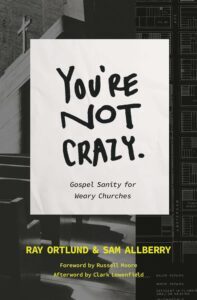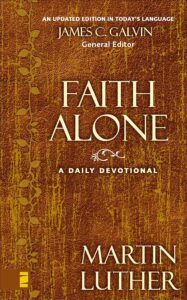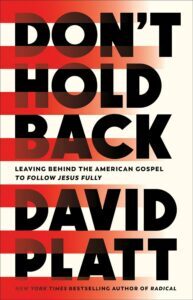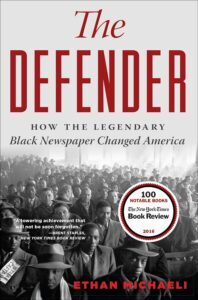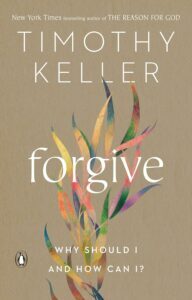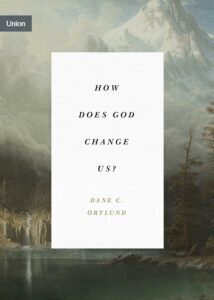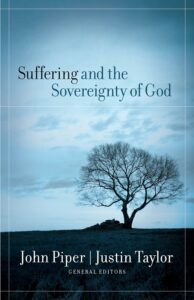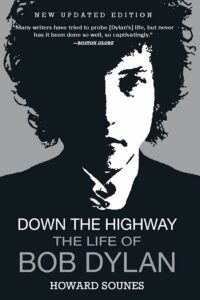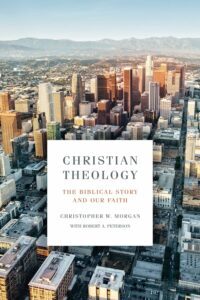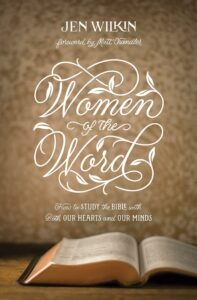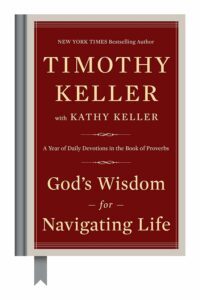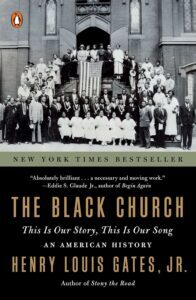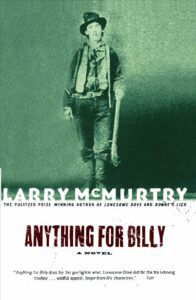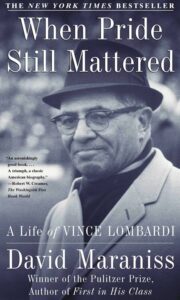Barnabas Piper's Blog, page 27
May 23, 2024
Curious Curmudgeons Episode 4: The Church Journey and Authentic Faith Connections
In this episode we talk about our church histories, examining the fabric of their faith from childhood to the present. We reflect on their formative years in the pews, the nuances of congregational life across different geographies, and the profound impact of long-term church relationships from San Diego’s sun-soaked sanctuaries to the Bible Belt’s abundance of worship.
In this heartfelt conversation, we navigate the ebb and flow of church life and church transitions. With personal stories of denominational shifts, crises of faith, and the grappling with the realities of church politics, we explore the landscape of church involvement. You’ll hear how journeys through job losses, divorce, and a call to ministry have been underpinned by the support of local church families. This is a narrative of resilience, demonstrating how, even amid life’s upheavals, the grace of God maintains our connection to this unique community.
Lastly, they delve into the complex dynamics of church membership, from the challenges of over-politicization within congregations to the role of church music and community engagement. Whether you’re rooted in a church, searching for one, or somewhere in between, this episode speaks to the enduring quest for a vibrant, Christ-centered fellowship.
Listen to Episode 4May 22, 2024
30 Great Quotes from “You’re Not Crazy”
You’re Not Crazy: Gospel Sanity for Weary Churches by Ray Ortlund & Sam Allberry is a wonderful, uplifting, reorienting book for any church leader or church member. While it is aimed particularly at those in leadership it offers wonderful encouragement to a churchgoer. I love and respect both these men and have learned so much from serving alongside them at Immanuel Nashville. I cannot recommend this book more highly. Here are 30 of the most significant quotes from its pages.
Every church has its own culture. The question is, how fully does its culture align with its doctrine? Whatever the answer, a church’s culture always reveals whatever the people most deeply believe. Not every truth that preached is believed down at the level of felt, shared reality.
The gospel–and justification in particular–calls for more than doctrinal subscription. It also calls for cultural incarnation.
Legalism is our native tongue.
It is possible to preach and defend the doctrine of justification by grace alone out of motives of self-justification–and to do so with its bitter fruit.
In a gospel-shaped church, for starters, people are honest in confession, bear one another’s burdens, and seek to outdo one another in showing honor.
Without the doctrine, the culture is unsustainable. Without the culture the doctrine appears pointless.
The ultimacy of Christ does not position us to go with the crowd, not even the Christian crowd, as if we need Christ plus human applause to stand on our own two feet.
The reassuring finality of “it is finished” had been eroded away by the acids of legalism. And self-justification creates only howling demand that nothing outside Christ can satisfy.
The church isn;t just meant to be a new community (there are plenty of those constantly springing up); it’s meant to be a new kind of community. This entails a different kind of welcome–one that’s ultimate origin isn;t earth but heaven. We don’t just welcome one another; we welcome one another as Christ has welcomed us.
Mercy is not getting what we deserve. Grace is getting what we don’t deserve.
We’re not meant to be conveying our welcome but Christ’s welcome. It is not about exchanging a cultural pleasantry but declaring a heavenly reality. We’re meant to be inviting brokenhearted sinners to collapse into the open arms of Jesus.
The welcome on a Sunday morning is where we pastors deconstruct the posing of nongospel culture and reconstruct in its place the beauty of gospel culture.
Whatever darkness inside of you troubles your heart, whatever capacities for wickedness and stupidity lurk within, whatever still haunts you from your past, however fearful you are that you will never change, know this: your sin does not intimidate Jesus. What is right in him far out-weighs what is wrong in you. There is more grace in him than guilt in you. He is better at saving than you are at sinning.
Biblical hospitality, however, is about opening up to others rather than trying to impress them. This means all of us can be great at hospitality. It only takes humble willingness.
The deepest reason for all our personal problems, and all the evils of history, is that we don;t know how beautiful God is. We barricade ourselves against the one we can most eagerly receive. Without him all we’re left with is ourselves.
If God really is light with no darkness at all, if God really is beauty with nothing distasteful at all, then we really can come out of hiding. We can get real with him. We can get real with one another. We don;t have to appear better than we really are.
The hope of the gospel frees our hearts from brooding self-focus, leaving us with nothing to give others. Instead, we look around at one another, and we start coming alive to “Christ in you, hope of glory.” (Col. 1:27)
The most noteworthy thing about you is not you but God’s love for you.
There’s a difference between Bible-based and being biblical. Being Bible-based is simply using Scripture, often just a verse or two, to justify what you’re saying, but being biblical is making sure what you’re saying is true to what Scripture as a whole says.
Apparently there’s a form of orthodox theology in hell. So, before we congratulate ourselves on having sound doctrine, we need to remember that believing the right, scriptural things isn’t enough.
Grace is not like a runway, the thing that launches us off. Grace is the plane itself. We get nowhere apart from God’s grace.
Leadership in the church is to be fundamentally different from leadership in the world. The characteristics so visible in this world’s rulers are to have no place among Jesus’s people. Jesus himself shows us that greatness is not to be measured by prowess but service, not by following the examples of the world but by imitating the Savior before us, not by being served but by serving others.
Leadership that only takes is an ever-present danger.
Inasmuch as we’re to put others” in their place,” it should be to put them above us, not beneath us.
If a believer has certain doctrinal views or behaves in certain ways simply because a pastor has coerced such behavior, then those views or actions do not proceed from faith. It’s not the Spirit of Christ who has brought them about but the forcefulness of the leader. This is catastrophic because such a believer isn’t led by the Lord, but by man.
People’s deepest impression of who Christ is will inevitably come from what they perceive their pastor’s heart toward them is.
The pastor must demonstrate ongoing repentance, for no Christian grows without repentance.
Age is valued as being a form of spiritual capital and a blessing to the church, not a hindrance.
The quality of our relational life in our churches is to be an apologetic to the world around us.
Kindle Deals for May 22
A few Kindle deals worth your mind and money today:
Faith Alone: A Daily Devotional by Martin Luther – $2.99
Don’t Hold Back: Leaving Behind the American Gospel to Follow Jesus Fully by David Platt – $4.99
Adoption: What Joseph of Nazareth Can Teach Us about This Countercultural Choice by Russell Moore – $6.99
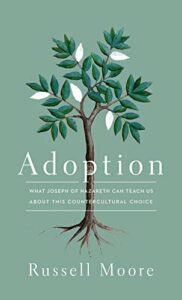
The Defender: How the Legendary Black Newspaper Changed America by Ethan Michaeli – $2.99
Eight Men Out: The Black Sox and the 1919 World Series by Eliot Asinof – $2.99
May 21, 2024
Kindle Deals for May 21
A few Kindle deals worth your mind and money today:
Forgive: Why Should I and How Can I? By Tim Keller – $4.99
Praying the Bible by Donald S. Whitney – $5.22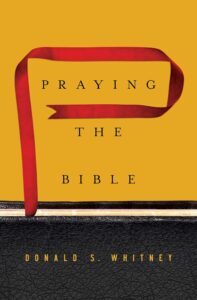
You Are What You Love: The Spiritual Power of Habit by James K.A. Smith – $3.99
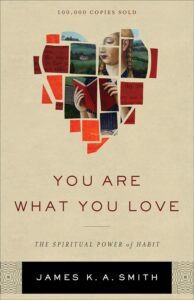
How Does God Change Us?: Real Change for Real Sinners by Dane Ortlund – $5.98
The Confessions by St. Augustine – $4.99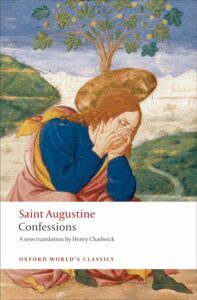
Suffering and the Sovereignty of God edited by John Piper & Justin Taylor – $6.99
May 20, 2024
Tim Keller, Kevin Garnett, and the Kind of Man I want My Son to Be
Yesterday my first son, Jack, was born at 1:15 PM, which is a great day for a Piper boy to be born. See, May 19 holds special significance for me because of two men who played formative roles in my life at different times and in (very) different ways.
On May 19, 1976 Kevin Garnett was born in Greenville, SC (coincidentally but unrelatedly, the same town where my dad grew up). In 1995 KG was drafted by the Minnesota Timberwolves. I was a sports-crazy 12-year-old Minneapolis kid, which means I was ripe for the capturing of heart, affections, fandom, and loyalty. And he did it.
KG was big in every way–7 feet tall (although perpetually listed at 6’11” so as not to be seen as a slow, plodding center), magnetic smile, charismatic, effervescent, loud, eloquent, fierce, and more than occasionally profane. His mouth never quit and neither did his competitiveness. He was a basketball savant who endeared himself to the fans of a beleaguered (read: perpetually horrendous) franchise and gave us hope. He respected his teammates. He respected the game. He gave everything he had in every practice and every game. He tested the limits of opponents, referees, and rules. And he dragged the Wolves to heights of competitiveness not seen before or since (until this year). He was a real life legend who in a very real way shaped my childhood and is, to this day, my favorite basketball player ever.
On May 19, 2023 pastor Tim Keller passed away from cancer in New York City. He was the founding pastor of Redeemer Presbyterian Church and the author of numerous books, of which it would be difficult for me to pick a favorite. Tim did not loudly and charismatically burst onto the scene of my life (I daresay I’m unaware of him loudly or charismatically doing anything public) but rather—as he was so gifted at doing—quietly, gently, irrefutably influenced my heart through his writing.
In 2011 I was spiritually exhausted and discouraged and in the throes of the most pronounced crisis of faith I’ve experienced. I read the first of Keller’s books I remember, Counterfeit Gods. It was clear, compelling, kind, inviting, uncompromising about Jesus, and exactly what my soul and mind needed. It called me to rightly ordered loves and loyalties. In the ensuing years, the ministry of Tim Keller continued to encourage, teach, and shape me. He spoke into suffering, work, marriage, and a thousand times over into my understanding and love of Jesus. He modeled Christian charity and courage in the face of opposition. He was unabashedly himself when he preached, not imitating anyone or attempting to be anything other than the man and minister God called him to be. He was massively influential despite (or maybe because of) having no interest in fame or status. Tim Keller was one of the greatest influences on my faith and ministry in my adult life.
There are few obvious similarities between Kevin Garnett and Tim Keller. But I admire both and hope my son follows in the footsteps of both. It’s unlikely he will be an NBA player (YMCA is more likely given the gene pool), but if he has a fraction of KG’s determination, loyalty, attention to craft, and fearlessness he can accomplish great things. But they will only be truly great if he follows in Keller’s footsteps of faith in Christ, devotion to the gospel, courage, humility, diligence, and wisdom.
May 19 will always be celebrated in our home as Jack’s birthday. And each birthday for a few minutes, after cake and presents and various festivities, we can also reflect on the kind of man he can be as we remember the loud life of a basketball legend and the long, steady fruitfulness of mighty man of God.
Kindle Deals for May 20
A few Kindle deals worth your mind and money today:
A Fever in the Heartland: The Ku Klux Klan’s Plot to Take Over America, and the Woman Who Stopped Them by Timothy Egan – $4.99
Down the Highway: The Life of Bob Dylan by Howard Sounes – $2.99
Churchill’s Ministry of Ungentlemanly Warfare: The Mavericks Who Plotted Hitler’s Defeat by Giles Milton – $3.99
 Orwell: The Life by D.J. Taylor – $1.99
Orwell: The Life by D.J. Taylor – $1.99
World Travel: An Irreverent Guide by Anthony Bourdain – $2.99

Dead Mountain: The Untold True Story of the Dyatlov Pass Incident by Donnie Eicher – $1.99

Joy is Strength
We tend to think of joy as a passive result of pleasurable things; something that just happens in us and to us when circumstances are pleasant, which means that joy comes and goes as circumstances change.
Nehemiah 8:10 says, “The joy of the Lord is my strength.” My strength. If this is the case, how can joy be just a feeling? That would be like saying, “the joy of the Lord is my Red Bull” or “the joy of the Lord is my coffee”–it gives me a shot of strength and then wears off.
But that’s not what strength is. Strength, through joy in the Lord, is our spiritual power to persevere, to lift our heads, to walk by faith no matter our circumstances. It is not a high or a shot or a boost. It is the state of a soul that rests fully in the good news of a real, ruling, rescuing Jesus.
That’s what the “joy of the Lord” means–clinging to what He says and living like it is true. It gives us peace and solid footing and, yes, strength. Joy is something we can attain and have at all times, no matter the circumstances, because God is always God and the good news of Jesus is always good. Circumstances change. Our hearts are fickle. But the joy of the Lord is our strength because He is unchanging, unfailing, and always inviting us into it.
 I originally wrote this post for my church, Immanuel Nashville, in our Daily Pulse email. If you want encouragement from God’s word delivered Monday thru Friday to your inbox, I encourage you to subscribe!
I originally wrote this post for my church, Immanuel Nashville, in our Daily Pulse email. If you want encouragement from God’s word delivered Monday thru Friday to your inbox, I encourage you to subscribe!
Photo by Aziz Acharki on Unsplash
May 17, 2024
Kindle Deals for May 17
A few Kindle deals worth your mind and money today:
Christian Theology: The Biblical Story and Our Faith by Christopher Morgan & Robert A. Peterson
$4.99
Women of the Word: How to Study the Bible with Both Our Hearts and Our Minds by Jen Wilkin
God’s Wisdom for Navigating Life: A Year of Daily Devotions in the Book of Proverbs by Tim Keller
The Black Church: This Is Our Story, This Is Our Song by Henry Louis Gates Jr.
$4.99
Anything for Billy: a Novel by Larry McMurtry
$4.99
When Pride Still Mattered: A Life of Vince Lombardi by David Maraniss
The Lord Tests Israel – He Reads Truth
Judges 3:1-31, Deuteronomy 8:1-2, Ephesians 5:6-14
Sometimes we encounter stories in the Bible that leave us wondering, “What is the point of that?” If we typically read Bible stories for moral lessons and life application takeaways, these stories—and Judges is full of them—will leave us bewildered. The stories of Othniel, Ehud, and Shamgar are great examples. Taken individually, each of these stories is difficult to interpret or find particular value in. However, looking at them together shows us some big truths about God, humanity, and salvation.
Moses told the people in Deuteronomy 8:1–2, as they prepared to enter the promised land, to keep all God’s commands so that they may live long and be well. He also said that God had tested their faithfulness and obedience, indicating God would continue to do so. And that’s what we find in Judges 3: the people failing the tests of obedience and faithfulness and turning to other gods. And so begins a pattern: rebellion by Israel, God handing them over to be ruled by a pagan power, the people crying out to God, and God raising up a judge to rescue them. The first three of these judges are Othniel, Ehud, and Shamgar.
Each of their stories is told quite differently. Othniel gets an overview, Ehud gets a fantastically detailed account (and, if I might say so, a rollickingly exciting and humorous one at that), and Shamgar gets barely a mention. But each judge represents something significant. They are God’s appointed rescuers. They are embodiments of God’s mercy on His undeserving people. They are answers to Israel’s desperate prayers. And they are temporary; each brought peace to Israel with God’s help, but the peace would not last. So this means that each of these judges foreshadows a better rescue.
The pattern of sin-judgment-outcry-rescue is not just the story of Israel. It’s one each of us ought to recognize in our own hearts. We, too, readily turn to anything or anyone but God with our worship and affection. But that better rescue has come, and we have access to it—or rather, to Him. Ephesians 5:8 says, “For you were once darkness, but now you are light in the Lord. Walk as children of light.” We were in darkness—we were like Israel chasing after other gods. But Christ rescued us and brought us from darkness to light.
What Othniel, Ehud, and Shamgar could only do incompletely and temporarily, Jesus has done perfectly and eternally. What they did with swords, stealth, and cattle prods, He did by laying down his life. So now we can step out of the rebellious pattern we were in and walk as children of light.
I have the privilege of contributing to He Reads Truth, a website of whose purpose is “To help men become who we were made to be, by doing what we were made to do, by the power and provision that God has given us to do it, for the glory of Jesus Christ.” They do this by providing scripture reading plans accompanied by reflections that can be accessed for free online or purchased as print books. This is one of the pieces I wrote for the Encounters with Christ plan.
May 16, 2024
Curious Curmudgeons Episode 3: The Ever-Evolving Nature of Friendship
Join us as we explore the evolution of friendship through the various stages of life, starting with childhood, reminiscing about the companionship of siblings and the “golden days” of high school. We discuss the social minefield of middle school and the burgeoning connections in high school and then the unique environment of college, where friendships deepened and yet we were free from the weight of adult responsibilities.
This conversation address the hurdles of cultivating friendships in adulthood, especially in the aftermath of 2020. We discuss the challenges and the necessity of intentional effort to maintain and build friendships that truly matter.
We wrap up the episode with a couple of light-hearted segments that bring humor and introspection to our discussion on friendships. And of course we conclude with our Curmudgeon Moment, ranting about the self-checkout experience and its place in our modern world.
Listen to Episode 3
